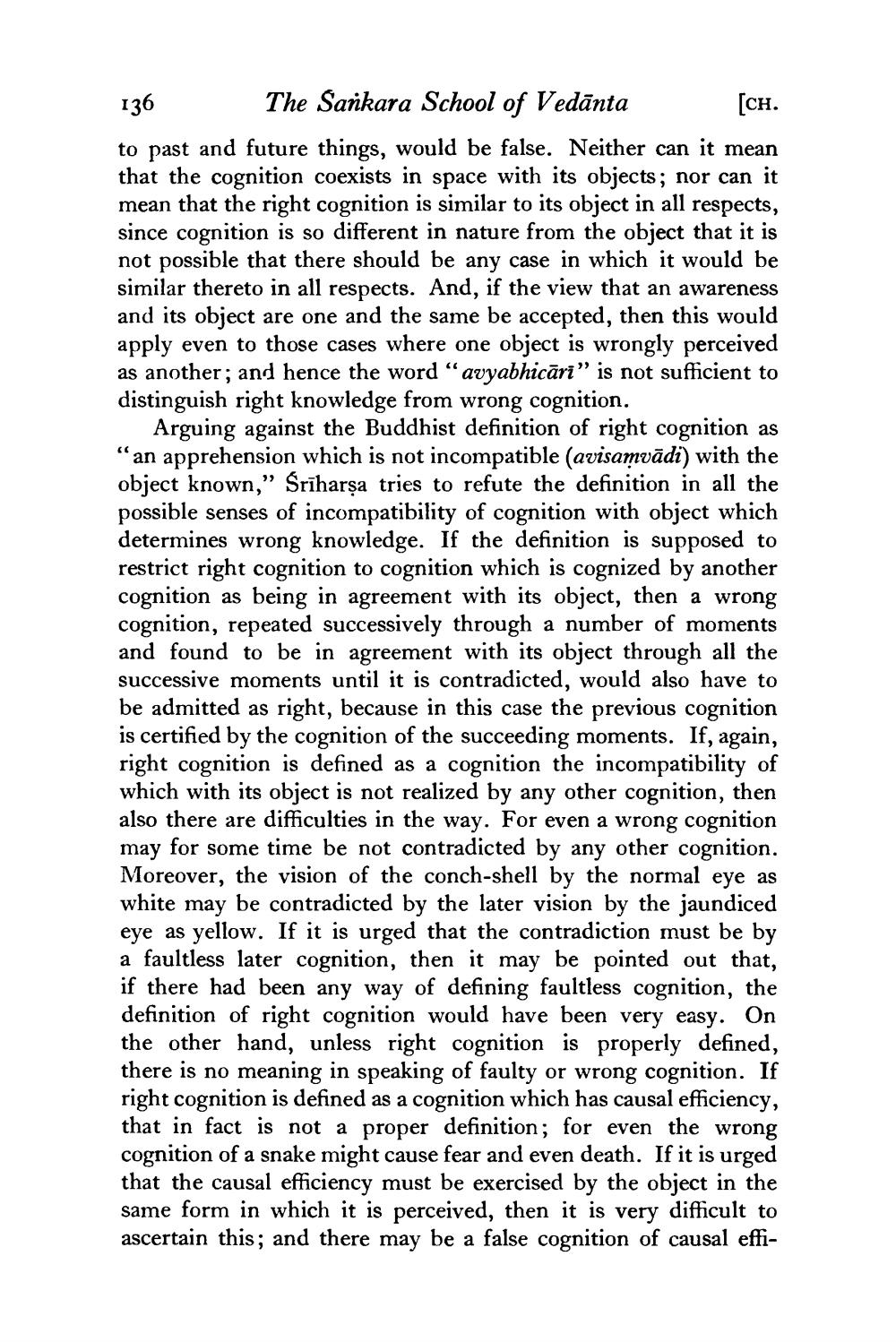________________
136
The Sankara School of Vedanta
[CH.
to past and future things, would be false. Neither can it mean that the cognition coexists in space with its objects; nor can it mean that the right cognition is similar to its object in all respects, since cognition is so different in nature from the object that it is not possible that there should be any case in which it would be similar thereto in all respects. And, if the view that an awareness and its object are one and the same be accepted, then this would apply even to those cases where one object is wrongly perceived as another; and hence the word “avyabhicārī” is not sufficient to distinguish right knowledge from wrong cognition.
Arguing against the Buddhist definition of right cognition as "an apprehension which is not incompatible (avisamvādi) with the object known," Śrīharṣa tries to refute the definition in all the possible senses of incompatibility of cognition with object which determines wrong knowledge. If the definition is supposed to restrict right cognition to cognition which is cognized by another cognition as being in agreement with its object, then a wrong cognition, repeated successively through a number of moments and found to be in agreement with its object through all the successive moments until it is contradicted, would also have to be admitted as right, because in this case the previous cognition is certified by the cognition of the succeeding moments. If, again, right cognition is defined as a cognition the incompatibility of which with its object is not realized by any other cognition, then also there are difficulties in the way. For even a wrong cognition may for some time be not contradicted by any other cognition. Moreover, the vision of the conch-shell by the normal eye as white may be contradicted by the later vision by the jaundiced eye as yellow. If it is urged that the contradiction must be by a faultless later cognition, then it may be pointed out that, if there had been any way of defining faultless cognition, the definition of right cognition would have been very easy. On the other hand, unless right cognition is properly defined, there is no meaning in speaking of faulty or wrong cognition. If right cognition is defined as a cognition which has causal efficiency, that in fact is not a proper definition; for even the wrong cognition of a snake might cause fear and even death. If it is urged that the causal efficiency must be exercised by the object in the same form in which it is perceived, then it is very difficult to ascertain this; and there may be a false cognition of causal effi




